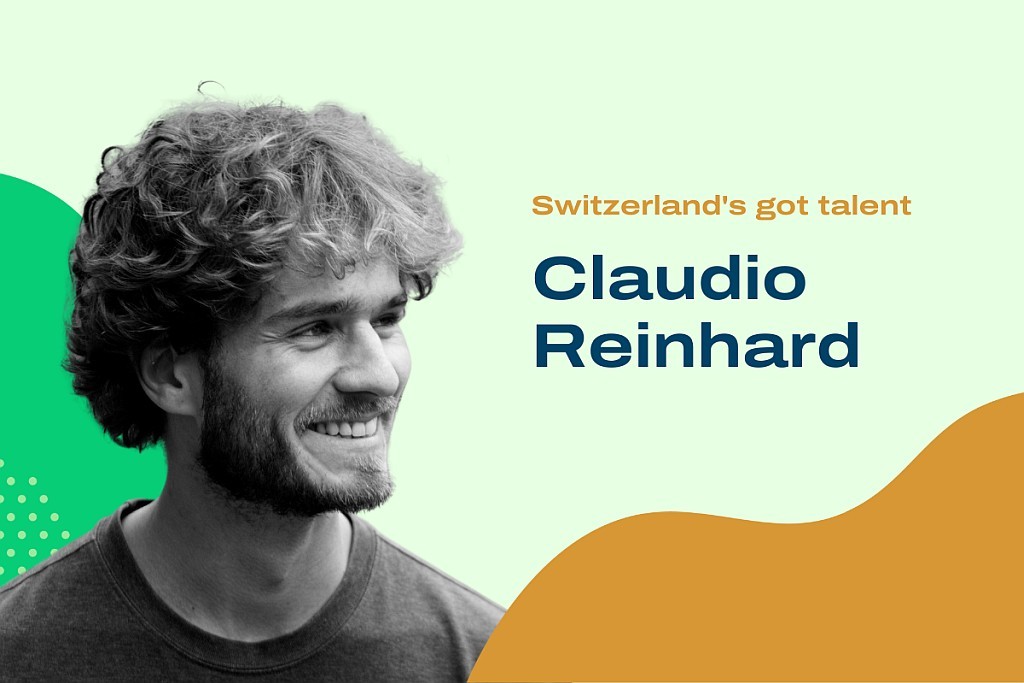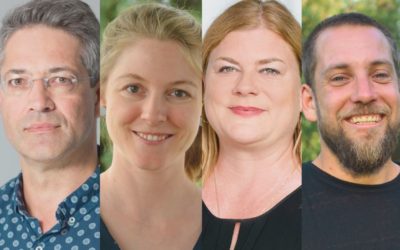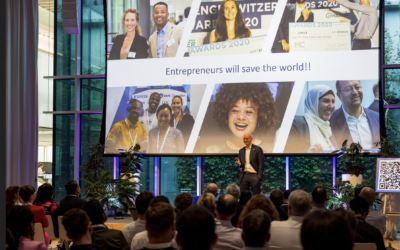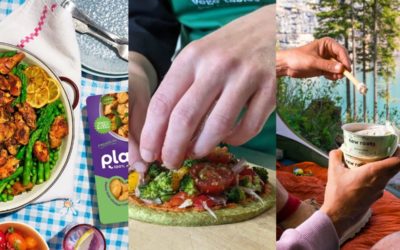Why an ETHZ researcher founded a startup to tackle waste in the olive oil industry

Claudio Reinhard set out to write his Master’s Thesis on soil regeneration in Tunisia. But after discovering a huge untapped opportunity in the olive oil industry, Claudio has transformed his findings into an award-winning collaborative research project and founded a startup to bring the developed solution to market. Now he’s looking for partners to scale his impact.
Tell us a bit about yourself
Hello, I’m Claudio – a mechanical engineer and ETH Zurich Project Lead who’s passionate about circular economy and entrepreneurship.
What’s the story behind your research?
I’ve always been interested in the concept of biorefineries and biochar and soil health in particular. Back in 2015 I’d planned to write my Master’s Thesis on how to use biochar in soils in Tunisia. While searching for a suitable source of biomass, I came across the topic of olive side streams.
I was surprised to discover that olive oil production is responsible for a huge amount of agricultural by-products. Only 20% of the olive fruit harvested is transformed into extra virgin olive oil. The remaining 80% pile up as massive amounts of a side stream known as olive pomace. If released uncontrolled to the environment, olive pomace can cause serious damage to soil and water bodies due to its phytotoxic and antimicrobial properties.
Nowadays, olive pomace is mostly used for the extraction of residual low-quality oil (pomace oil) before the remaining biomass is burnt. But this is a huge loss of value. Olive pomace is very rich in valuable, natural substances, called antioxidants. Olive antioxidants are known for their tremendous health benefits and strong antioxidant potential. I recognized that there was a huge opportunity to transform this abundant and low-cost by-product into a wide range of value-added products.
Eager to build upon the promising results of my Masters thesis, I teamed up with Prof. Laura Nyström from Laboratory of Food Biochemistry at ETH Zürich, to initiate the EIT Food project Phenoliva, which kicked off in October 2019.
Tell us a bit more about the Phenoliva project
The Phenoliva project is an EIT Food innovation project. It brings together partners from the food industry, research and academia to develop and implement an integrated waste management concept for the olive oil industry.
Using a novel process, the project partners extract olive antioxidants from olive pomace, and process the resulting extract into an innovative antioxidant that can be used as a valuable natural additive in food and cosmetics. The process is circular and all by-products are recycled.
We were thrilled to win the EIT Food Impact Prize in the circular economy category last year and to be nominated for this year’s EIT Awards. This recognition keeps us motivated and moving forward!
So how are you taking the results of your project forward?
In 2021 Laura Nyström and I decided to found a company to commercialize our findings. Over the last few months I’ve teamed up with Enrico Tenaglia, a biomolecular scientist, and Samuel Bühlmann, a business and marketing specialist, to develop and implement a go-to market strategy.
So far this year, we’ve been selected to take part in the Startlife accelerator in Wageningen and have travelled to Africa as part of the SASBI program to explore the potential of sidestream valorisation in the coffee industry. We have also made it into the MassChallenge Switzerland 2022 Accelerator as one of the top 100 start-ups in their Sustainable Food Solutions track. We’re very excited about what’s coming in the next few months!
What are your next steps?
We’re now starting discussions with industry partners so that we can develop a network of potential customers. We’ll be initially focusing on the cosmetics industry – a sector that has already shown significant interest in our ingredients.
We’re also working alongside local partners to set up a production site in Andalusia to produce antioxidant extracts from olive pomace. This should be up and running in 2023.
How can other ecosystem actors get involved in your work?
Actors from the cosmetics, food, supplements or feed and pet food sector are very welcome to reach out to us to discuss how our product could be used in their product lines.
In the last few months, we’ve received some requests from agribusinesses that are interested in applying our upcycling process to their own harvest and production waste. We’re now working closely with an almond farm in Portugal in order to help them transform thousands of tons of almond husks and shells into added-value products. If any businesses are interested in exploring how they could valorize their harvest or production waste, I’d love to connect.
You can also tune in and watch me pitch the project at the EIT Awards semi-finals on September 29. If you like what you hear, you can vote for us from September 29 to October 11.
What advice do you have for other researchers who would like to transform their findings into practical projects or businesses?
Find advocates who believe in the potential of your project. Prof. Laura Nyström has been a supporter from the beginning and remains actively involved in Gaia Tech as an advisor. Her support and encouragement has made a huge difference!
Find out more on the Gaia Tech website.
About the Phenoliva project
The Phenoliva project is an EIT Food innovation project funded by the European Institute of Innovation and Technology (EIT), a body of the European Union. Funded with over €2M, the project started in October 2019 and ends at the end of 2022. The interdisciplinary Phenoliva consortium consists of eight partners from academia, applied research and food industry. Gaia Tech was founded to bring the project results to the market.
Never miss a Swiss food innovation morsel.
Latest News
Impact Digests | Can we scale up regenerative farming for a sustainable future?
We recently held our third Impact...
Bühler hosts 80 innovative start-ups as part of the Masschallenge programme
Despite a reduction in start-up...
The role of Innovation, Impact and Frontline Agricultural Nations in driving global food system transformation
The role of Innovation, Impact and...
Vege’tables teams up with Planted and New Roots to drive healthier and more sustainable diets.
Smart Food consultants, Vege’tables...




